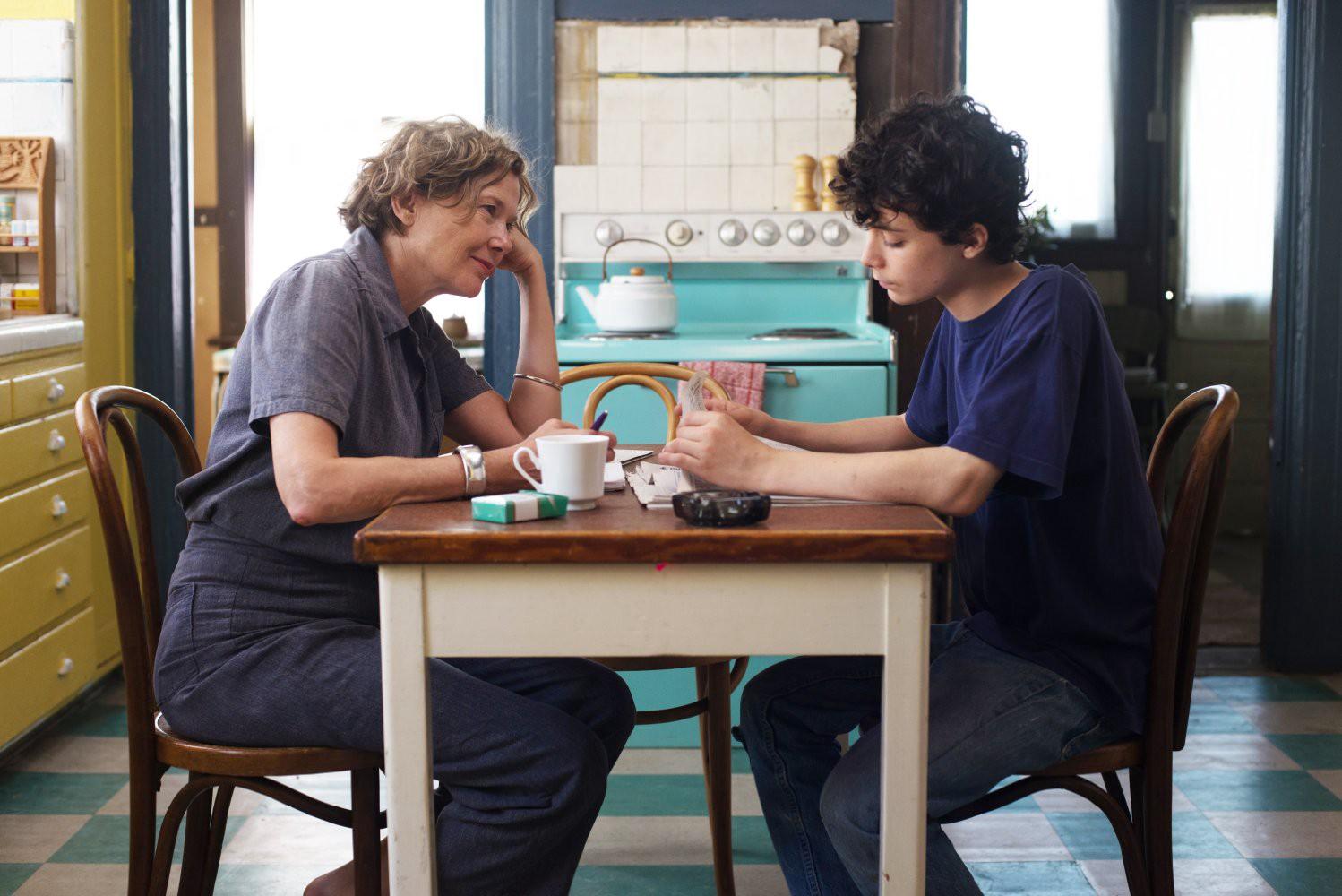
Mike Mills’s past two films — Beginners and 20th Century Women — have both been semi-autobiographical. Beginners focuses on Mills’s father, who came out at age 75 shortly before his death, while 20th Century Women is based on Mills’s mother as a way to look at the 1970s. On Channel 33, Sean Fennessey talked to Mills about his experience making the films, and how he blends his own childhood with his art.
Listen to the full podcast here. This transcript has been edited and condensed.
How ‘20th Century Women’ Differs From ‘Beginners’
Sean Fennessey: Did you have any apprehension before you started writing this about diving back in so deep to your personal memory?
Mike Mills: Beginners was about my dad coming out and then dying. And I started it right after he died so I was intoxicated by grief — and grief can make you very brave and very willing to risk everything. Like for real. So you’re on drugs, you know. I was un-sober when I made that. But I liked it. I liked the whole process. And I used personal material, not with the attempt to just make a memoir, but to find something real to share with other people. So the intention all the way along the line was to find parts of the story that can be good for a movie, that could be good to share with strangers, that can be communicable.
And I had a little bit of my mom in Beginners, and she’s such a film character in herself — such an unusual woman and she’s so interesting in relationship to history. I’m really interested in portraits of people that are very historically specific and about how history shapes us. So she’s really apt to talk about that. Being someone who’s born in the ’20s and having me in the ’60s and being like an Amelia Earhart, Humphrey Bogart person in the ’70s raising a punk rock kid. It was all these problems there.
Fennessey: Those are like weather vanes for every decade.
Mills: Yeah and also, she [was] very much a fish out of her historical waters in real life. And then, when you’re making a movie about people that exist, people are so much bigger, longer, more complicated than a film version of them. Even if you’re trying your hardest to capture them. You’re [only] going to capture a slice of them. So it’s not like you’re showing everything. And that somehow makes it easier in a way.
On the Difficulty of Blending Accuracy With Memory
Fennessey: I have a few questions about sort of the nature of accuracy. Especially when you’re dealing with your parents, because you see them through this very specific prism. How did you research your own life to do this? And then how did you determine what would end up on the cutting room floor?
Mills: So 20th Century Women is from more of a distance than Beginners. Beginners [had] fresh memories that had a real grippiness to them and a concreteness. [The stories in 20th Century Women] are sort of like your family stories. Everyone has family stories of your childhood. So these are more like lore a little bit.
Fennessey: When you’re writing something like this … do you picture your mom saying it? Or do you picture a movie star saying it? Is it just something that is more abstract than that?
Mills: Well my mom died in ’99. So I started [writing this] in 2011, so she’d been gone for a while. So if I concoct her up in my head, which I did a lot when I wrote it, I’m even aware that this [version] isn’t Mom. This is my best attempt to remember Mom. But that’s one thing that’s very sad about losing people and grief and stuff like that, is the farther away you get from when they died, you lose a little bit of them every year. And your ability to bring them up.
So even as I was writing, I knew that I was dealing with an odd version of my mom that wasn’t really, exactly her. And I don’t really think of actors. That doesn’t work for me, doesn’t help me write. And it doesn’t work technically. You never get the person you thought you were going to get. And so there’s this weird hybrid that’s going in my head. Sometimes, I’ll be honest, I’ll be sort of flirting with an actor in my head over this three-year process of writing the script and then it’ll kind of come and go. And that might work for a week, and often I’ll be like, "Ah crap. I just wrote a bad version of the film I just saw [that actor] in." So I’m not sure it helps at all.
How Desperation Makes His Writing Better
Mills: The process is so long. At least for me. That sometimes … I am trying to cast someone in my head and they’re infecting my script. For me, ultimately writing gets [me to] this place where it’s like, "OK. I can’t do this. I’m completely screwed. And this is my last film if I get to make it. And I’m screwed and I have nothing to lose and the plane is going down, I might as well just say what I fucking think." And I always get to that spot. And that’s actually where I really write from.
Fennessey: Yeah, I know a lot of writers who can identify with that desperation and the knowledge of failure going forward.
Mills: Yeah. I have a certain amount of time before the plane hits the ground, [so] let’s try to get the scene done. You know.
Mills Reused Family Heirlooms … to Save Money
Fennessey: I read that the wooden rabbits that your mom carved and her jewelry … Annette Bening wears it, and she plays Dorothea, the protagonist of the film. Is that all to sort of make you feel comfortable, like you’re doing something that’s more documentary-esque? Or is it just for authenticity? How do you make those choices?
Mills: It’s a little bit of everything. It’s also cheap. And my movies … every dime, you have to think about. Like every dollar. So if I can get some free jewelry, yes it’s amazing that it’s my mom’s bracelets and they’re perfect and they’re really unique and special and adds a little bit of magic to give them to Annette Bening. And then Annette Bening’s willing to wear them. Yes, it’s enchanting the whole situation and adding a gravitas. But no one needs to know that. [If] the people in the theater don’t know about it, that’s fine.
People like to talk about it, and that’s fine too. But it’s free. There’s also a lot of furniture in the movie that’s from my house and paintings and the amazing bedspread. Because my parents had amazing taste. It’s totally indigenous to my portrait of them. It’s the right stuff and I can drive it down in my Volvo. You don’t need a teamster to bring it down. You don’t have to pay a rental for my house. So I saved like ten-plus grand, just there.

